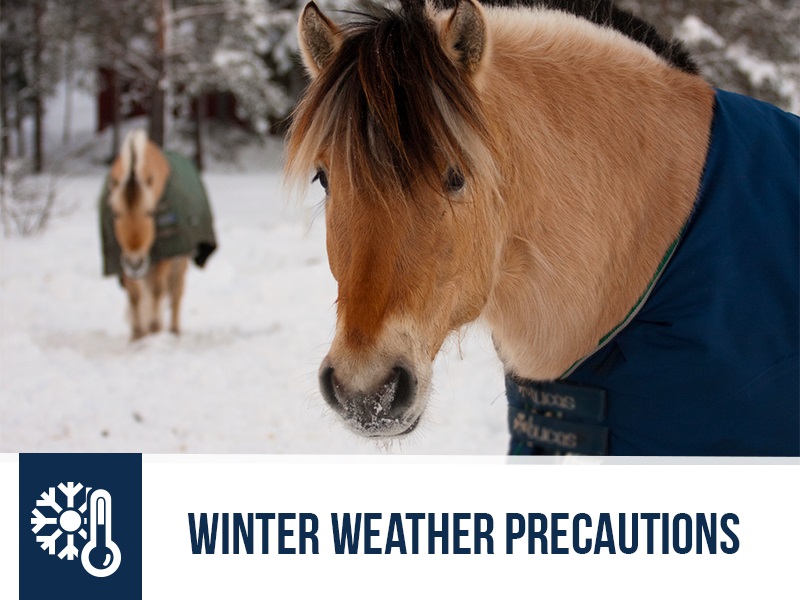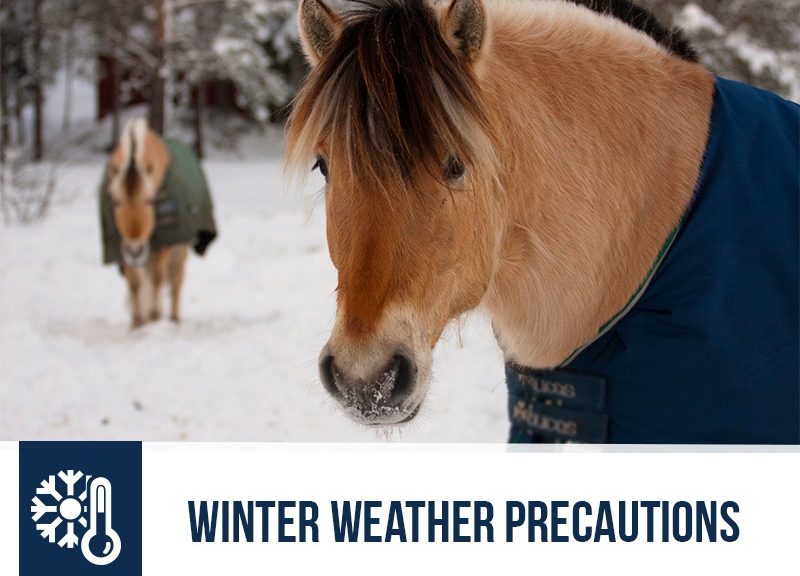
Horses are hardy animals that are capable of resisting a good cold weather season but, as with all of our animals, they require special care and attention to make sure they don’t suffer any unnecessary stress.
We love our comfortable loveseats by the fire with a warm blanket and a hot beverage so we tend to look to our horses standing outside in the snow and rain with some pity but experts agree that, when allowed to acclimatize, horses often prefer being outdoors. This, of course, is given sufficient shelter and nutrition provisions.
Important things to consider when preparing your horse for this winter are:
- Making sure your animals have adequate shelter from extreme conditions like wind, storms or heavy snowfall and give them free choice to be either outside or on the shelters/stable. While they can resist temperatures of around -15ºC in the absence of wind or moisture, heavy snow or rain makes them search for shelter.
Colder weather means horses require more energy at rest to keep core body temperature stable. The lower the temperature gets and depending on body conditioning scores/coat type, the more forage will be needed so consult with your vet regarding the quantity your animal should be receiving.
Keeping an eye on water conditions and water intake seeing as winter feed usually has less moisture. If dramatically decreased, lower water intake will risk severe gastrointestinal tract problems like colic. Snow and ice are not adequate sources of water for domestic horses, as such, make sure that water is above freezing, ideally between 7 and 18 to maximise consumption.
Blanketing is usually needed when there is no shelter available, when the horse has a chance of becoming wet or had its winter coat clipped, when animals are very old, very young or with low body mass. The coat is an amazing insulator but this is only true if it is not wet or muddy, so if you see your horse might suffer from rain or ice get them a nice, well fit blanket.
Exercise and hoof care should feature on the calendar of any responsible horse owner. The weather may be bad, but they require regular exercise to avoid problems like lower leg oedemas and further complications when heavier work returns in spring. Hooves in general don’t grow as much during winter but that doesn’t mean they don’t need trims every six to twelve weeks and regular professional attention.
Beyond these, interacting and looking over your horse regularly is the best way to not be caught by surprise with a horse too thin, dehydrated or with limb issues! If you have any questions, don’t hesitate to contact your vet and they can help you find the best way to keep your equine companion in tip-top shape this winter.
Would you like to know more about horses? Check our Equine Courses:
Equine courses

